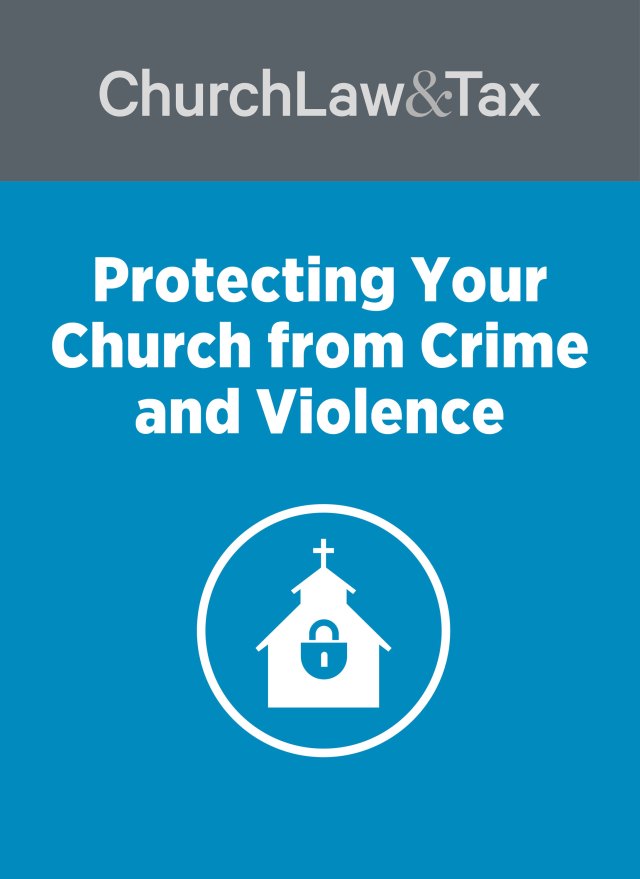Compassion, anxiety, bewilderment … these are just a few of the words that describe how church secretaries and other staff members feel about working with transients and others who come to the church seeking personal help. Often, church secretaries work alone at the church office and when confronted by a street person seeking money, they are caught between a desire to help and personal fear for their own safety.
Develop a safe response plan
Helping the poor is central to the church’s mission. But that does not mean that such help should be done thoughtlessly or without concern for the welfare and safety of those who work with the needy. To avoid problems, church staff members need training and guidance in responding to transients and to other individuals seeking help. Church leaders should take the initiative to see that their church has developed an adequate set of policies and procedures to respond to those who come to the church seeking assistance. Often, the secretary is at the church alone when these situations occur. Clearly, such scenarios require advanced planning.
- Define each staff member’s role with respect to the church’s ministry of caring for the needy. Clarify tasks such as interviewing, making referrals, giving vouchers, and following up.
- Establish procedures to enhance personal safety in responding to the needs of transients. As churches become an increasing target for theft, and the number of people seeking financial assistance increases, church staff members are becoming more concerned about safety issues.
- Provide training to church secretaries and other staff members on how to respond to transients. For many church secretaries, their introduction to working with transients occurs when the first needy person arrives at the church office. Have staff members engage in role-playing to practice how they would respond in a true-life situation. Here are some training tips:
- Staff members should know what information to collect and how to verify it from those requesting help.
- Staff members should be able to make referrals. Create a brochure that lists the type of assistance programs available in your community. Provide one to each person who requests help.
- Tell people what you can do rather than what you cannot do. Keep coming back to “Let me tell you what we can do.” This may be only making a referral.
- Security issues
- Consider the following points:
- When a secretary is working alone at the church, the building should be locked. An electronic lock can be installed in the door, which allows the secretary to unlock the entrance without leaving the office. Even if an electronic security system is not possible, the doors should remain locked and a doorbell should be used. Some churches maintain an open-door policy. In this case, control access to the office. Do not let strangers into the work area.
- In high-crime areas, access to the building should be controlled during office hours even if the secretary is not alone in the building.
- An intercom system should be installed between the secretary’s office and the pastor’s office. While that has value far beyond security concerns, it also allows the secretary to contact the pastor if a problem is developing. A code word can be used indicating that immediate assistance is required in the church office. Also install a panic button in the church office. The button should activate an alarm in other parts of the building that summons help. If the phone system permits, program speed dial numbers for emergency phone numbers such as the police.
- If a church employee is working at the church alone, he or she should not indicate that to someone over the phone, or to a stranger who drops in.
- Employees who work alone should let others know their schedule. Church secretaries, for example, can call someone to let them know they are leaving work before they walk out into a dark parking lot and drive home. The church should maintain adequate lighting in all areas around the church and in the parking lot. Employees should have parking spaces as close to the door as possible.
- Do not allow strangers to enter the church office. If the only access to the office is through the door (as opposed to a business window) and a counter does not separate the workspace from the reception area, consider installing a Dutch door. The top half can be left open while the bottom remains locked. Sometimes a person will ask to use the office phone. Some churches provide access to a pay phone, or to a phone in the reception area that can be used for local calls only. Some secretaries make the call on the other person’s behalf. The point is to be safety conscious.
- Do not keep large amounts of cash at the church.
- If a staff member feels that an unsafe situation is developing, he or she should not hesitate to contact the police. If your phone system has speed dialing, program the local police number into it for quick access.
- Some people have serious emotional problems or needs that go far beyond the secretary’s ability to help. Staff members should know their limits and be prepared to make referrals when necessary.
- Do not give cash. Use a voucher system.
- To the extent possible, provide food assistance to all who request it based on reasonable frequency guidelines. Food is a basic human need and often the person requesting help has children. The local church can maintain a food pantry, know where to make referrals, or provide vouchers that explicitly state what can and cannot be purchased with them.
- Ask for identification (driver’s license, etc.) and references. Don’t be afraid to make a few phone calls to gain more information.
- Verify the need. Ask for names, addresses, phone numbers, statements, and other relevant information. If the person is evasive, take note of it and raise your level of caution.
- Inquire concerning the person’s religious background. Do they have a minister you can contact? Why did they come to your church? Have other churches helped them?
- Don’t allow yourself to be manipulated by guilt (e.g., “If you were really a Christian…”).
- The con artist often stresses the urgency of the need and presents it in a life-or-death context. Legitimate requests may also contain an element of urgency. Look for other factors such as manipulation and evasiveness if you believe it may be a con.
- The con artist often has no local ties. He or she is from out of town and has been waylaid by a series of unfortunate circumstances. When you ask for names and references they have none. However, they have plenty of excuses.
- Unless you have discussed it with a lawyer, do not hire transients for part-time work. Some churches operate with the assumption that work will separate the truly needy who have the right attitude and commitments from the freeloaders. However, once the church begins to pay a transient to do work for the church, a number of legal concerns arise related to liability, workers compensation insurance, social security, and withholding taxes. Make sure you understand the legal implications before hiring a transient.
- Develop a community-wide program with a centralized referral system. Often this is done through the local ministerial association in cooperation with the police and other social service agencies.
Responding to the con artist
Any organization that provides resources to those in need will also attract those who attempt to abuse the system. This is especially true of churches. The Christian emphasis upon caring and compassion can be viewed by the con artist as an invitation for easy pickings.
Often, those who try to con church staff members are in as much need as are others who seek help. The difference, however, is that the con artist uses lying and deception to swindle staff members. When the con artist succeeds in securing financial assistance, it perpetuates dishonesty and takes away limited resources from others who deserve help.





